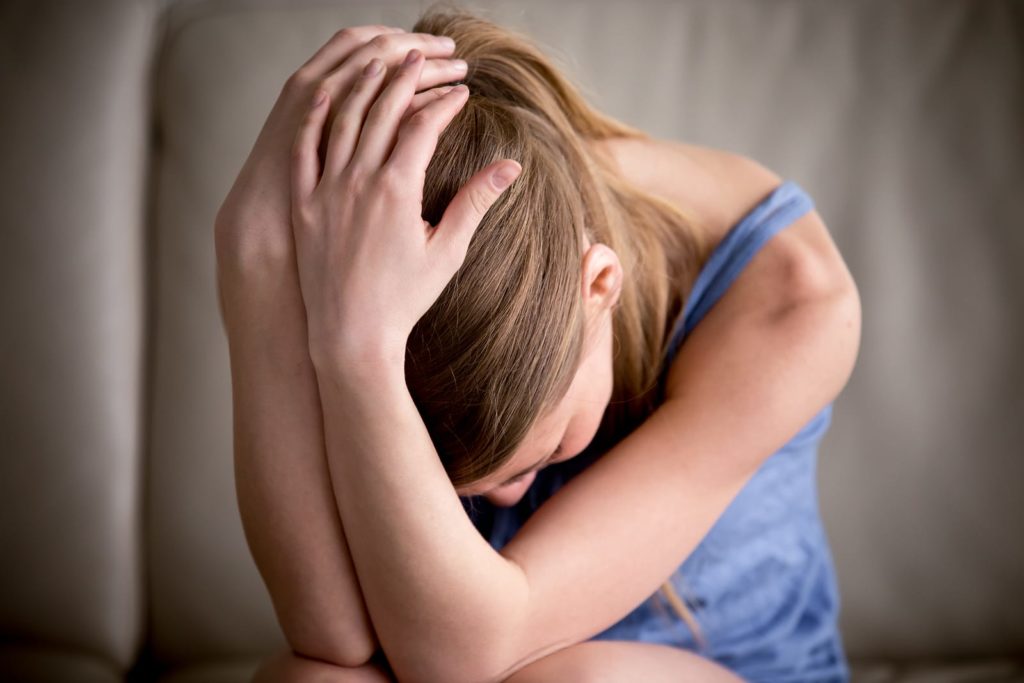The statistics are sobering and discouraging: about one-quarter of American women will become victims of domestic violence at some point in their lives, while one in eight will suffer from an addiction to drugs or alcohol. But these two problems should not be seen as entirely separate. In reality, the connection between substance abuse and domestic violence runs deep, as three-fourths of all women who develop addictions have a history of childhood and adult trauma and those who have been physically assaulted by at least one domestic partner are significantly represented among this group. It is hardly surprising that women who have been traumatized, sometimes repeatedly, would turn to drugs and alcohol to help them escape from painful memories and horrific present realities. It would be a mistake to see it all as a simple matter of one-way cause-and-effect, however, since drug and alcohol abuse also help to fuel domestic abuse—more than 60 percent of all male abusers have substance abuse issues themselves, and women who have been drinking or using drugs are also much more prone to act out violently against their partners than those who are sober. So it is more accurate to say that the connection between substance abuse and violence is complex, disturbing, and mutually reinforcing. Drugs and alcohol are often used as a psychological coping mechanism by women victimized by domestic violence, but in the end they will only make things worse, turning bad situations into disasters and strengthening the unhealthy dynamics of bad relationships that were doomed from the start.
The Immeasurable Value of Doing It Anyway
Any woman living under the constant threat of physical abuse from someone who supposedly loves her needs to remove herself from this environment as soon as possible. But addiction can complicate things considerably—a woman experiencing domestic violence who is also dependent on drugs or alcohol may feel overwhelmed at the thought of trying to survive on her own, believing that her ability to take care of herself has been hopelessly compromised by her addiction. Also, she may feel deeply ashamed for allowing herself to be victimized twice over, and she may be too embarrassed to admit to anyone what has been happening to her and how she has chosen to respond. Additionally, if there are children she may feel afraid that she will lose custody if she tries to leave and it later comes out she has been abusing drugs or alcohol. And finally, rather than anticipating support from family and friends who are outraged by the way her partner has been treating her, a woman in this situation may feel like her loved ones will scorn and reject her if they find out about her addiction. With her self-esteem at an all-time low, and feeling more disempowered than she ever has at any other time of her life, a woman facing domestic abuse while struggling with addiction may believe her situation is hopeless. But as the title of a best-selling self-help book once advised, there are certain times in life when you must “feel the fear… and do it anyway,” and women who are being physically and emotionally abused while they abuse themselves with drugs and alcohol in a futile attempt to cope are in just such a circumstance. The presence of either addiction or domestic violence is a sign of a life careening out of control, but both together is a four-alarm fire that must be put out quickly before it burns everything to the ground.
The Hardest Choices are the Easiest
Naturally a woman who decides to leave domestic abuse behind will have to find somewhere to stay (perhaps a women’s shelter) or someone to stay with first. But once this practical problem has been solved and she has actually left, she will need to seek treatment for her substance abuse problem soon after, because even when the immediate threat of violence has been removed, she will still be dealing with a dangerous illness that could end up killing her if she continues to let it run out of control. No matter what her fears are or how worried she is about being stigmatized or rejected, she has no choice but to act, since her situation is unsustainable and will inevitably end in catastrophe if she does not take action. Among the ranks of recovering addicts and alcoholics are many women who found the strength to leave domestic abuse behind, realizing that their circumstances were so dire that they could end up losing everything if they didn’t make a change. And to their delight, once they have gotten clean and sober, most of these women have been able to start a new life and rebuild their shattered self-esteem, and those who have children have been able to provide them with a much safer environment and much more enjoyable lives. Women with addictions who are also the victims of domestic violence should have a powerful motivation to seek change and transformation, and as long as they don’t allow their fears and insecurities to get in the way, healing and redemption could be just around the corner.

